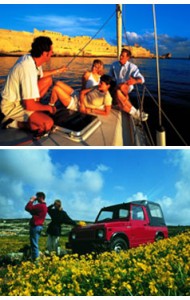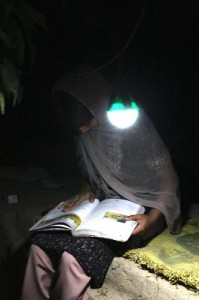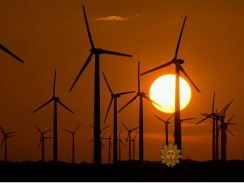 This fall, Crystal Cruises’ guests have the opportunity to give back and see Valetta, Malta from a different point of view on award-winning Crystal Serenity voyages this fall. A brand new Crystal Adventure invites travelers to “Go Green” in Malta, by planting trees in the island’s only national park, donating food at a local charity and learning eco-conscious planting and harvesting practices at a local organic farm. The optional Crystal Adventure is available on Crystal Serenity’s 12-day, October 19 Mediterranean/Holy Land voyage from Athens to Rome, and the 11-day, October 31 Mediterranean/Spain voyage from Rome to Barcelona, and is $95 per person.
This fall, Crystal Cruises’ guests have the opportunity to give back and see Valetta, Malta from a different point of view on award-winning Crystal Serenity voyages this fall. A brand new Crystal Adventure invites travelers to “Go Green” in Malta, by planting trees in the island’s only national park, donating food at a local charity and learning eco-conscious planting and harvesting practices at a local organic farm. The optional Crystal Adventure is available on Crystal Serenity’s 12-day, October 19 Mediterranean/Holy Land voyage from Athens to Rome, and the 11-day, October 31 Mediterranean/Spain voyage from Rome to Barcelona, and is $95 per person.
“This excursion affords guests the opportunity to contribute to the local needs in Valetta, and also gain a better understanding of the environmental efforts of the destination,” says John Stoll, vice president, land and port operations. “Like so many Crystal Adventures, this experience offers a new point of view for guests who want to explore destinations from a deeper, more informed perspective.”
The nearly eight-hour excursion begins with a visit to Ta’ Qali National Park, where guests will plant trees and learn about the park’s conservation efforts. Following a guided tour and lunch at eco-conscious Ta’ Zeppi Organic Farm, guests will visit a local orphan refuge, where they will donate time and food for the young residents.
The Valetta excursion highlights Crystal’s efforts to bring global awareness to its six-star vacation experiences, and is a prelude to its global ‘You Care, We Care’ program debuting in 2011.
 Solar energy to save lives
Solar energy to save lives
By Charissa Sparks
An estimated 1.5 million deaths in Africa have been caused by the use of kerosene lamps. In an effort to address this issue, the first solar-powered light bulb is now being distributed as an alternative for people in developing countries who live without electricity.
It is estimated that 70 percent of sub-Saharan Africa lives in rural areas. Of these people, 90 percent have no access to electricity. In such instances, many people are forced to light and heat their homes with kerosene lamps.
The World Bank has found burning kerosene indoors to be equivalent to smoking two packs of cigarettes a day. It is estimated that almost one billion women and children are breathing in kerosene on a daily basis. Continued use of these lamps can cause infection of the lungs or eyes, and respiratory problems.
In addition to the significant health risk of the fumes, fires can also erupt when a lamp is knocked over, or when household items or clothes are exposed to the flame.
A company called Nokero has begun producing the first solar light bulb. Tom Boyd, representative for Nokero, told MediaGlobal, “The target market is the extremely poor, the so-called ‘bottom of the pyramid.’ With 1.6 billion people worldwide living without electricity, and another 1.8 billion living with intermittent electricity, the demand for clean safe, solar light is nearly inexhaustible.”
While distribution began on 10 June of this year, the new solar light bulb has already been purchased in 30 countries, and shipments for testing have arrived in Liberia, Pakistan, Haiti, and Nicaragua. “These bulbs are being used and tested by families who live with minimum or no electricity at all,” Boyd said. “We hope for sustainable growth that will give the bulbs the longest possible lifespan on the market with the best possible outcome for those on the ground who are using it.”
Nokera’s solar light bulb is rain-proof, made of shatter-resistant plastic, with four solar panels on the sides to collect the sun’s energy. When placed in full sunlight for eight hours, the light bulb will produce between two and four hours of light. Each of these green light bulbs has a battery that is designed to last two to three years and is both replaceable and recyclable. The solar panels on the side are expected to last five years or more.
“There is a great need for these light bulbs, and many people will be able to use them,” Boyd stated. At present, the cost of these solar bulbs is a main concern for Nokero. A single unit is sold for $15, but when sold in bulk, the price will be significantly lowered, with some as low as $6.
Finding ways to make these solar lights available will reduce the number of kerosene lamps needed, providing safer and healthier living situations for the vast amount of people living without electricity today.
Alternative Energy: Will U.S. Lead or Follow?
Oil Spill Turns American Minds to Renewable Power Sources As
Inventors, Investors Wait for Gov’t to Get Serious
See the video
WHAT’S INSIDE
SUBSCRIBE TO UPDATES HERE
NEW! ECO TRAVEL
NEW: ORGANIC
NEW! WIND & WAVES
 TV
TV
VISIT THE SOLAR WALL
QUESTPOINT GOES MOBILE – Beta



